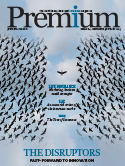‘Workforce exhaustion a top risk’

Rapid changes to working conditions resulting from the COVID-19 pandemic have exposed gaps in the ability of organisations to respond to risks associated with their workforces, according to a new report by Mercer Marsh Benefits (MMB). Conducted a year after the declaration of the pandemic, the survey of over 100 regional HR and risk management professionals highlighted workforce exhaustion as one of the top people-related challenges facing firms.
According to the global survey, The Five Pillars of People Risk: Managing risks for workforce and business resilience, the main barriers to addressing these issues were that organisations lacked resources to understand and address these exposures, a lack of senior leadership engagement, and budgetary constraints.
Regionally the survey identified differences in risk by sector; workforce exhaustion was rated as one of the top people risks for financial institutions with skills obsolescence a major challenge in the auto and manufacturing industries. Environment-related issues were named as a key issue for the retail sector while the increasing cost of benefit provision was of concern in the construction sector.
Globally both the US and UK ranked mental health deterioration as top risk issue while respondents in MENA said that workplace exhaustion, attracting and retaining talent and the rising cost of benefit provision as their main concerns.
Commenting on the findings, Julio Garcia Villalon, Mercer Marsh Benefits leader – MEA, said: “While the disruption caused by COVID-19 radically changed how business viewed their people, it also changed employees’ expectations. At the same time that firms face a dramatic increase in risks such as cyber, they also need to re-examine their approach to employee benefits, particularly around mental and physical wellbeing if they are to reap the benefits of attracting and retaining the best talent.
“The pandemic has firmly put people matters on the boardroom agenda and business leaders should look to address these challenges holistically. By applying a risk management lens to their people strategy and employee benefits; organisations can build workforce and business resilience.”
The report picks up on the issue of deteriorating workforce mental health following a widely reported rise in people suffering from anxiety, stress, depression, and addiction in the wake of the pandemic.
Andrew Brody, Mercer Marsh Benefit, advice and solutions leader – MENA, added: “Workforce exhaustion is increasingly recognized as a concern for business leaders and while our survey showed that it is not yet a significant focus for HR we anticipate this changing as the importance of physical and mental wellbeing on an organisations productivity becomes better understood.
“For this issue to be successfully tackled, organisations must ensure that there is support from the highest level, with engaged leaders, investment in skilled resources and adequate budgets to proactively change cultures, practices and employee support programs.”





































